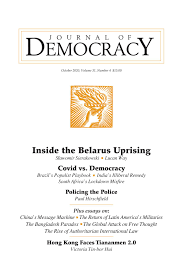 The pandemic has had two dramatic effects in the West, reports suggest:
The pandemic has had two dramatic effects in the West, reports suggest:
- It has spotlighted shortcomings in Western democracies, where death rates have been far higher than in many Asian countries.
- And the prospect of unprecedented government spending to get Western economies back on their feet has sparked intense debate over future priorities: over how all that money should be spent.
“The Wake-Up Call” by John Micklethwait, former editor of The Economist newsmagazine, and its current political editor, Adrian Wooldridge, emphasizes elements they see as essential not just to making democratic government work, but to rebuilding a relationship of trust between government and the governed, CSM adds. German Chancellor Angela Merkel “has always known that government matters,” they point out. “Brought up in East Germany, she knows what tyranny means. Trained as a scientist, she knows how to evaluate evidence. … This is a serious woman who is doing serious work.”
 The Journal of Democracy‘s just-released October 2020 issue features a set of articles gauging the #COVID19 pandemic’s political impact across three emerging democracies:
The Journal of Democracy‘s just-released October 2020 issue features a set of articles gauging the #COVID19 pandemic’s political impact across three emerging democracies:
- India’s covid-19 response has accelerated the country’s slide toward competitive authoritarian rule by centralizing decision making, undermining federalism, and providing new pretexts for stifling dissent, Rahul Mukherji writes in India’s Illiberal Remedy.
- By highlighting the deficiencies of authoritarian-populist president Jair Bolsonaro’s rule, the covid-19 pandemic is likely to leave Brazil’s democracy intact but even more brittle, Amy Erica Smith observes in Brazil’s Populist Playbook.
- South Africa’s government sought to heed expert advice with its covid lockdown, yet shortcomings in state capacity fatally undermined both the virus response and efforts to address its devastating economic toll, Nicoli Nattrass and Jeremy Seekings assert in South Africa’s Lockdown Misfire.







